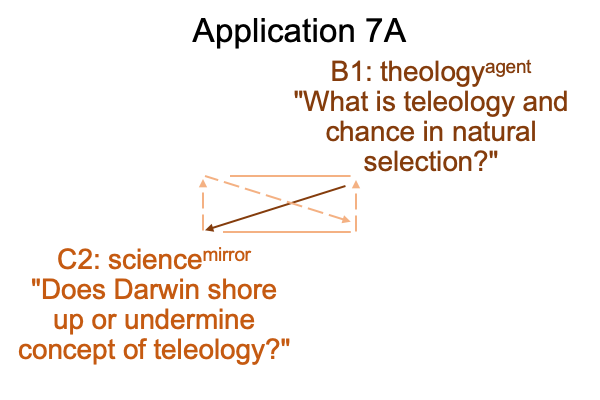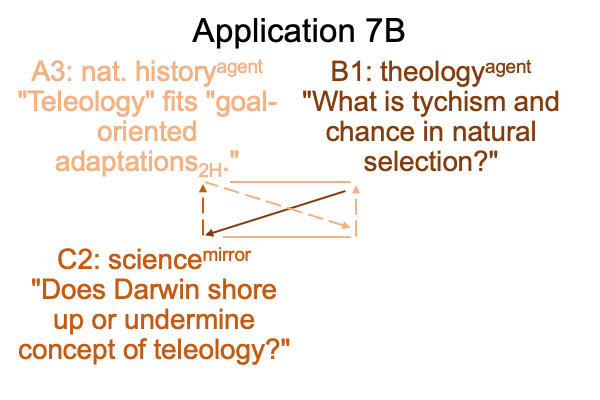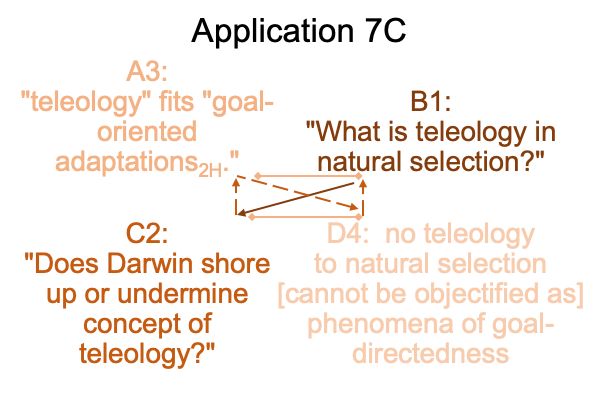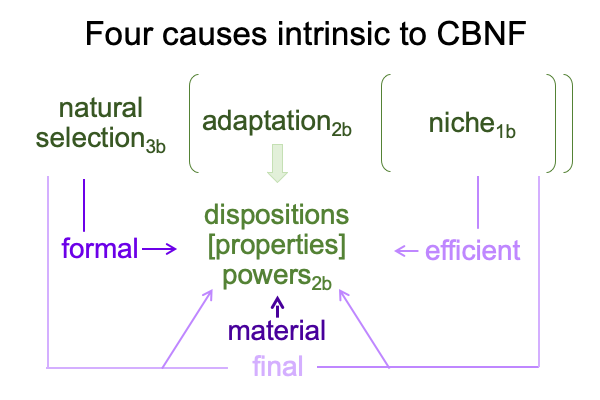0721 Chapter three concerns natural selection, teleology and chance in evolution.
Surely, that sounds like the natural history side of the NeoDarwinian intersection.
0722 Of course, the potentials1b of the environment of evolutionary adaptation (EEA2a, also the actuality independent of the adapting species, AIAS2a) involve both tychism (blind material and instrumental necessity) and chance (blind happenstance).
I know what you are thinking.
Please, do not ask me what tychism and chance have in common.
0723 I am sure that some sort of image of that request appears in theologymirror (D).
And, the chapter starts with theologyagent (B).
Here is a picture of the start of Tabaczek’s discussion about tychism and chance.

0724 As soon as the author raises the question as an agent of theology (B1), an image appears in the mirror of science (C2). The image consists of a question that either accuses or absolves Darwin of undermining the traditional Aristotelian concept of final causation. The entire image is sort of foggy, because every answer seems to be correct and incorrect at the same time.
Unfortunately, the key answer for theistic (C) evolution (A) is what the agent of science says. The evolutionary biologist (A) says that natural selection itself is not goal directed. However, goal-directedness can be adaptive.

0725 Uh oh.
If that is the case, then what should I expect to see in the mirror of science (D)?
Something that does not quite make sense?
Here is a picture.

0726 Of course, the scientist’s affirmation that there is no teleology to natural selection (A3) is reflected in the mirror of science (D4). Natural selection offers a picture of something blind. Oh, correction. Two blind somethings. Plus, both are associated with model [disciplinary language] observations and measurements.
Does that imply that both models and observations in evolutionary biology lack purpose?
Nature needs to have foresight, at most, and vision, at least, in order to formulate a final cause. Nature has no such foresight or vision. It only has those two blind whatevers.
Yet, Aristotle’s four causes are intrinsic to every category-based nested form, including the situation-level nested form for the discipline of natural history… er… evolutionary biology.

0727 What does this imply?
There is a lot of explaining to do.
